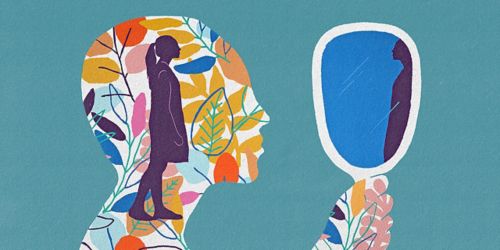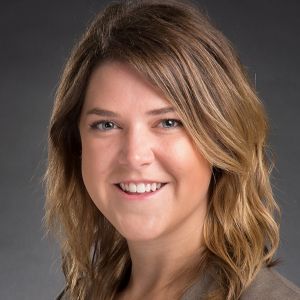St. Jude Family of Websites
Explore our cutting edge research, world-class patient care, career opportunities and more.
St. Jude Children's Research Hospital Home

- Fundraising
St. Jude Family of Websites
Explore our cutting edge research, world-class patient care, career opportunities and more.
St. Jude Children's Research Hospital Home

- Fundraising
Teens and Twenties: St. Jude aims to improve psychosocial well-being of adolescents and young adults with cancer

Clinicians and support services staff are addressing the unique psychosocial needs of adolescents and young adults with cancer.
Imagine looking in a mirror and seeing a stranger’s face staring back.
Recently, a young adult patient, coping with gradual hair loss, described this unsettling experience to me. Looking in her mirror, she saw someone with a confusing future, a disrupted sense of self, a deferred dream of completing college, and a new label of “cancer patient” where “athlete” used to be.
Ultimately, she couldn’t recognize or relate to that version of herself. She felt angry and sad.
In the past three years, 30% of new patients at St. Jude were 13 or older. And a significant number of patients enter adolescence during treatment. Many of those teens and young adults with cancer struggle with psychosocial concerns, but St. Jude is working to change that.
Growing pains: Psychosocial needs of AYA patients
In many ways, adolescents and young adults (AYAs) with cancer – patients in their late teens and early 20s – don’t fare well in comparison to pediatric and adult patients. Gains in the survival rates of AYA patients haven’t kept pace with those in other age groups. In treatment, AYAs are less likely to follow treatment recommendations and more likely to report cancer-related fatigue. Also, they feel significant stress related to fertility and sexual health.
Yet AYAs with cancer still face the same developmental challenges as their healthy peers: building and maintaining friendships and romantic relationships, developing a sense of independence, and achieving academic and career success. A cancer diagnosis disrupts those pursuits by distancing patients physically and emotionally from routines, relationships and goals. As a result, AYAs often feel socially isolated and frustrated. They also struggle with their body image more than their healthy peers do.
Clinicians are acutely aware of these problems. Accordingly, the field of AYA oncology has grown in recent years. Managing the unique medical and psychosocial needs of these patients requires collaboration across disciplines. At St. Jude, an organized effort to improve the psychosocial well-being of AYA patients began 18 months ago.
A little help during a tough time: The AYA Psychosocial Committee
In July 2018, the Department of Psychosocial Services created the AYA Psychosocial Committee. Members of this group represent departments across the institution: Social Work, Psychology, Child Life, School Program, Spiritual Care Services, and Patient and Family Centered Care.
These individuals evaluated existing programs; they talked with providers, patients and parents; and they identified new opportunities to address the unmet psychosocial needs of patients 13 and older. The committee was the driving force behind a number of recent activities designed to boost psychosocial well-being, including a resume workshop, college counseling sessions, a fertility and sexual health Q&A session, an outing to a Memphis Grizzlies game, and a meet-and-chat event with cancer survivors who were patients at St. Jude as teens and young adults.
Recently, medical providers at St. Jude joined the committee, resulting in a comprehensive perspective on the medical and psychosocial needs of AYA patients. This collaborative effort will increase the odds that when a patient in treatment looks in the mirror, she will see not only problems but possibilities.






